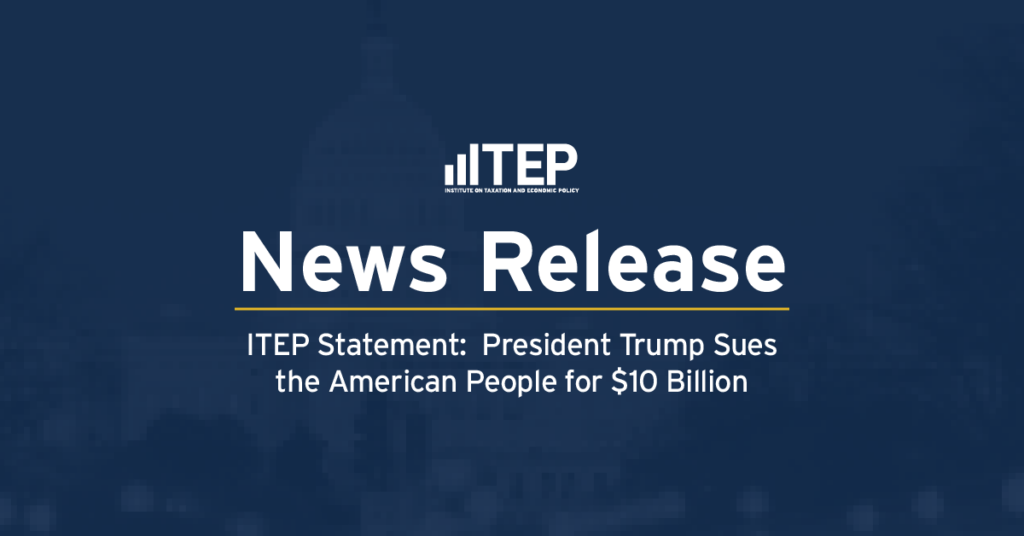Plan mostly will benefit corporations and highest-income households. Maintaining top tax rate doesn’t negate all the other provisions that benefit the wealthy
Following is a statement by Alan Essig, executive director of the Institute on Taxation and Economic Policy, regarding the GOP tax overhaul legislation released earlier today.
“At the outset, GOP leaders promised a tax plan that would benefit middle-class taxpayers. But the starting point for tax reform has always been a plan to drastically cut corporate taxes with the promise that the benefits would trickle down to working people. Instead of engaging in a thorough, public process that may have yielded real tax reform for middle-class families, lawmakers covertly put together a plan that reserves its biggest benefits for corporations and the wealthy while throwing in a few gimmicks for political cover.
“The most transparent attempt at pretending this tax plan is for the middle class is a provision that maintains a top marginal income tax rate of 39.6 percent for millionaires. This change is a talking point rather than an authentic effort to ensure the most financially fortunate taxpayers don’t reap all the benefits. Most income earned by the wealthy, including capital gains, dividends, and business pass-through, are afforded special treatment under this plan and will not be affected by either a 39.6 percent or 35 percent top ordinary tax rate. Moreover, eliminating the estate tax, slashing the corporate tax rate and repealing the Alternative Minimum Tax also will provide a substantial benefit to the wealthy—though these provisions have the political advantage of being more arcane.
“GOP leaders and tax writers also claim provisions that increasing the standard deduction (which they are disingenuously claiming offers a “new” zero percent bracket) and the Child Tax Credit demonstrate this is a plan for the middle class. But in the broader context of the proposal, which also raises the bottom tax rate and repeals personal and dependent exemptions, most itemized deductions, and the extra deduction benefit available to elderly and disabled taxpayers, these increases are less about boosting tax benefits for the middle class than about repackaging them in ways that allow Republican leaders to engage in a lot of hand-waving about the effort they have put into helping ordinary families.
“While much focus will be on the proposed changes to individual taxes, the core of this tax overhaul is a bulky tax cut for businesses. The bill would cut the statutory corporate tax rate from 35 percent to 20 percent and create a new loophole rate of 25 percent for pass-through businesses.
“It’s ironic that lawmakers have talked about simplifying the corporate tax code but instead have created several new loopholes. The plan would vastly expand offshore tax avoidance opportunities by moving to a territorial tax system. Multinational companies will be allowed to pay half the rate on their offshore earnings that they pay here at home. It would also allow companies to immediately expense capital investments, greatly expanding the already overly generous 50 percent bonus and accelerated depreciation provisions in the tax code.
“My colleagues and I will be producing a formal, 50-state distributional analysis of the plan in the coming days. That analysis will provide greater detail about who would benefit most. But based on a preliminary review of the plan, it is already clear that corporations and the richest taxpayers would be the biggest beneficiaries.”



